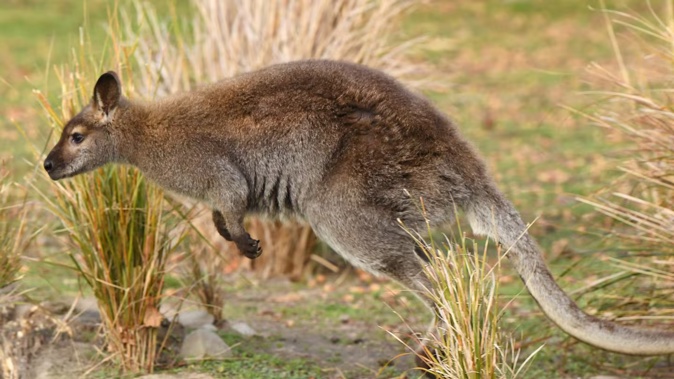

A southern council is defending its $34,000 spend on a wallaby hunt despite never finding the rogue animal.
In September, Environment Southland was notified of a reported sighting near the Waiau River control gate in Te Anau Basin, prompting an extensive search.
Although droppings were discovered that were likely to have been from a wallaby, the culprit was never found.
This week, the Taxpayers’ Union released a Local Government Official Information and Meetings Act (LGOIMA) response from the council showing the cost of the hunt tallied $34,216, including both contractor and staff costs.
That excluded money spent by Tipu Mātoro National Wallaby Eradication Programme, which also assisted in the search.
Environment Southland integrated catchment management general manager Lucy Hicks said the regional council was required to take sightings seriously.
Wallabies were capable of having a big impact on both Southland’s economy and biodiversity, she said.
“They could become a big financial burden for future generations should feral populations become established as they have in other regions, such as Canterbury.”
Hicks said it was reassuring not to find an indication of a wallaby population as a result, and thanked the community for their vigilance.
The LGOIMA document showed the operation spanned from September 17 to October 15 and involved six staff members for a total of 181 hours.
On one of the days, as many as three dogs, one thermal drone and two firearms were on hand — although the latter were never used.
Wallabies are an exclusion pest in Southland, meaning efforts are made to stop them from establishing in the region.
Hicks said the animals were known to contaminate pastures, damage fences, destroy crops, contribute to erosion, and kill young plantation forest seedlings.
They also hindered native bush regeneration.
Twenty-two wallaby sightings have been reported in Southland since 2015, but only one has been found — a live wallaby in Invercargill, back in 2016.
- LDR is local body journalism co-funded by RNZ and NZ On Air.
Take your Radio, Podcasts and Music with you









